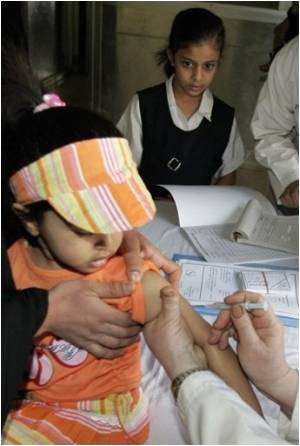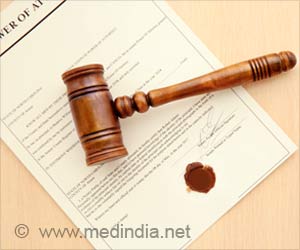A US federal appeals court on Friday has upheld a ruling against claims that vaccination had led to autism.

But in 2009, Special Master Denise Vowell, cited by the AP, The evidence “is weak, contradictory and unpersuasive,” concluded Special Master Denise Vowell. “Sadly, the petitioners in this litigation have been the victims of bad science conducted to support litigation rather than to advance medical and scientific understanding” of autism.
More than 5,500 claims have been filed by families seeking compensation through the government’s Vaccine Injury Compensation Program, and Thursday’s rulings dealt with the first three test cases to settle which if any claims had merit. The first cases argued that a combination of the measles-mumps-rubella vaccine plus other shots triggered autism.
“I must decide this case not on sentiment but by analyzing the evidence,” said Special Master George Hastings Jr., writing specifically about Michelle Cedillo of Yuma, Ariz., who is disabled with autism, inflammatory bowel disease and other disorders that her parents blame on a measles vaccine given at 15 months.
“Unfortunately, the Cedillos have been misled by physicians who are guilty, in my view, of gross medical misjudgment,” Hastings concluded.
Earlier this year the so-called vaccine court also concluded that the additive thimerosal is not to blame for autism, an added setback in a long-running battle by parents convinced there is a connection.
Advertisement
The decisions help to offer reassurance to parents scared about vaccinating their babies because of a small but vocal anti-vaccine movement. Some vaccine-preventable diseases, including measles, are on the rise.
Advertisement
Mups-Rubella vaccine or MMR was revealed in a study led by Dr. Andrew Wakefield and published in the Lancet - a prestigious British medical journal. The journal later retracted the study report.
Many studies have suggested that other factors may affect the risk of autism. Recently, Dr. John Cannell, a vitamin D expert and director of Vitamin D Council, and colleagues proposed a theory which suggests that vitamin D deficiency plays a role in the development of autism even though other risk factors may also have an impact.
Parental autoimmune diseases may increase the risk of autism in offspring, according to one study led by Keil A. and colleagues from the university of North Carolina and GlaxoSmithKline and published in the Aug 25, 2010 issue of Epidemiology .
Another study, led by Durkin M.S. and colleagues from the University of Wisconsin School of Medicine and Public Health, published in the Dec 2008 issue of American Journal Epidemiology suggests that advanced parental age may be a risk factor for autism.
Parental psychiatric disorders were also correlated with autism spectrum disorders in their children, according to a study led by Daniels J.L and colleagues from the University of North carolina and published in the May 2008 issue of Pediatrics.
Some studies even found that vaccines may slash the risk of autism.
It’s not easy to prove or disprove something in cases of drug safety, a health observer commented, as most studies are sponsored and even directly conducted by drug companies, meaning that there is always some conflict of interest, wrote Jimmy Downs wrote for Foodconsumer.org.










